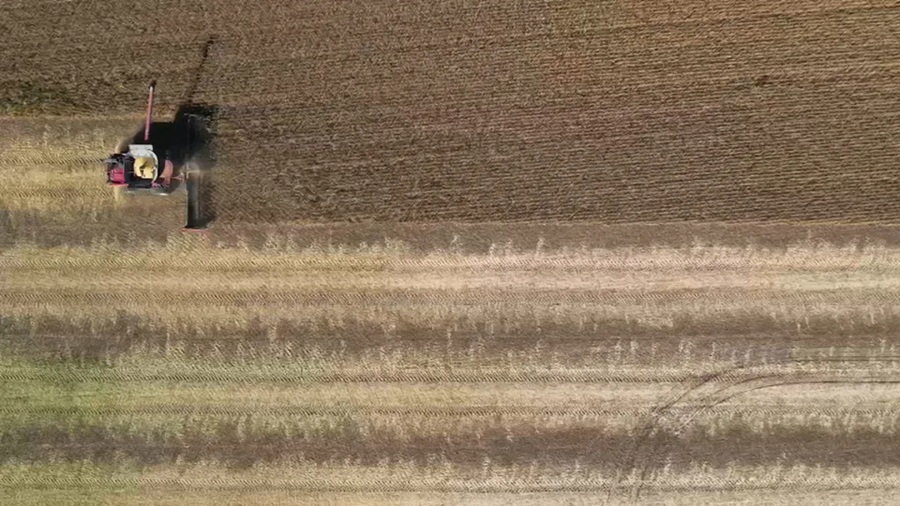Introduction
In a startling development that could deepen already tense U.S.-China relations, American officials have accused China of engaging in "agroterrorism"—the deliberate sabotage of a nation’s agricultural sector. While cyberattacks and trade disputes have long dominated the bilateral conflict between the two global superpowers, this latest accusation opens a new front in the geopolitical contest: food security.
The U.S. government claims it has gathered intelligence suggesting that China is attempting to undermine American agriculture through bioengineered pests, seed manipulation, and cyberespionage targeting critical agricultural infrastructure. Beijing has denied the allegations, calling them “baseless and politically motivated.” But Washington insists the threat is real—and growing.
What Is Agroterrorism?
Agroterrorism refers to the malicious use of biological agents to disrupt a country’s food supply or agricultural productivity. This can include spreading plant pathogens, infecting livestock, tampering with genetically modified crops, or targeting food distribution systems.
While traditionally viewed as a concern tied to rogue actors or extremist groups, the term is now being applied in the context of alleged state-sponsored activities. According to the U.S. Department of Homeland Security, agroterrorism poses a “significant risk” due to its potential to cause economic devastation, food shortages, and public panic.
What Are the U.S. Allegations?
The recent accusations stem from a multi-agency investigation involving the FBI, Department of Agriculture (USDA), and intelligence community. The findings, which remain partially classified, reportedly suggest:
Introduction of Invasive Species: Intelligence officials claim China may be covertly releasing invasive pests and plant diseases into the U.S. ecosystem to damage crops and reduce yields.
Tampering with Seed Supplies: There are concerns that Chinese seed companies exporting to the U.S. may be embedding genetically altered traits intended to disrupt crop cycles or reduce resistance to disease.
Cyberattacks on Agricultural Infrastructure: U.S. authorities report an uptick in cyber intrusions targeting seed databases, irrigation systems, and farming logistics platforms.
Espionage in Agri-Tech: A growing number of Chinese nationals working in agri-tech firms or research labs have been investigated for allegedly stealing proprietary farming technology and data.
While no single incident has been confirmed publicly, the cumulative pattern has prompted U.S. lawmakers to act.
Political Reactions and Policy Moves
In response to the accusations, a bipartisan group of U.S. Senators is now pushing for legislation that would strengthen biosecurity protocols and restrict foreign ownership of agricultural land. Senator Josh Hawley (R-MO) called the allegations “a wake-up call to safeguard our food supply from hostile foreign influence.”
Meanwhile, the White House has initiated new directives mandating background checks for foreign researchers in federally funded agricultural programs. The USDA is also collaborating with state governments to monitor unusual crop failures and pest outbreaks more closely.
China's Response
China’s Foreign Ministry has flatly denied the accusations, accusing Washington of "spreading disinformation for domestic political purposes." In a press briefing, spokesperson Mao Ning stated, “China respects the sovereignty of all nations and has no interest in harming another country's agriculture. These claims are another manifestation of U.S. paranoia.”
Chinese media outlets, particularly state-run Global Times, have framed the accusations as a distraction from the U.S.’s own agricultural challenges, including climate-related disruptions and infrastructure deficiencies.
Expert Opinions: Real Threat or Political Theater?
The agroterrorism charge has sparked heated debate among experts.
Dr. Karen Middleton, a professor of Agricultural Biosecurity at the University of California, said, “There’s no smoking gun yet, but we’d be naïve to think food systems aren’t targets in the modern era of hybrid warfare.”
Others are more skeptical. James Pelham, a former intelligence officer and now a fellow at the Center for Strategic and International Studies, noted, “These kinds of allegations should be handled with extreme caution. Without hard evidence, it risks creating unnecessary panic and worsening international relations.”
Still, the very notion that agriculture—a seemingly peaceful and non-political sector—could become a battlefield has left many Americans uneasy.
Impact on Farmers and Agri-Business
For American farmers, already grappling with inflation, labor shortages, and climate volatility, the specter of agroterrorism adds a new layer of anxiety. If true, such acts could lead to lower yields, higher insurance premiums, and tighter regulations.
Companies in the agri-tech sector, particularly those with supply chain links to China, may face scrutiny or loss of market access. Analysts warn that even unfounded suspicions could disrupt U.S.-China trade, which remains critical for American soybean, corn, and meat exports.
Conclusion
Whether or not China is truly engaging in agroterrorism remains to be conclusively proven. However, the mere accusation underscores a rapidly changing landscape in international conflict—where food, data, and biology are as much weapons as tanks and missiles. For the U.S., protecting its agricultural base is not just about food security; it’s now a matter of national defense.
As investigations continue and tensions mount, the world will be watching closely. One thing is clear: in the 21st century, even our farmlands are not immune from geopolitical crossfire.
